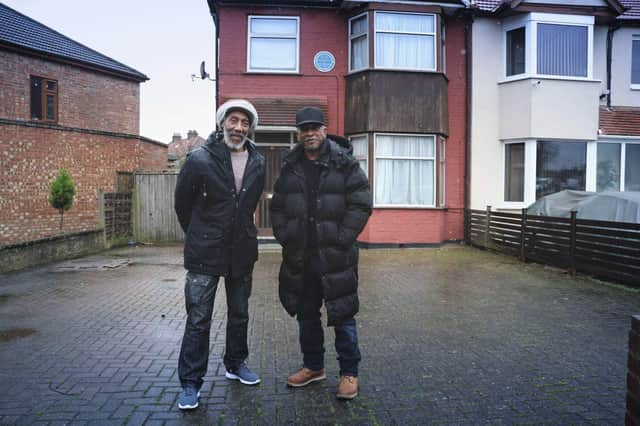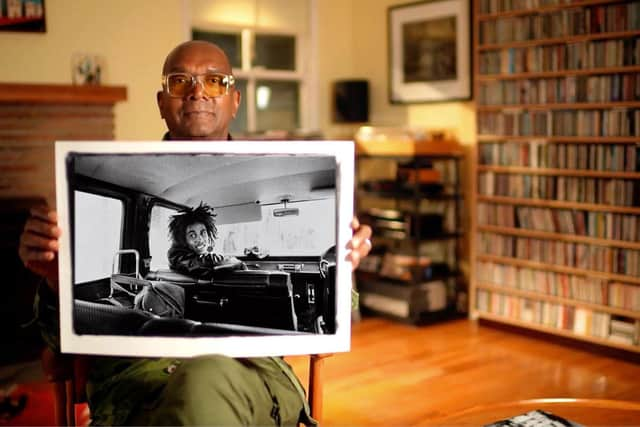Remembering ‘when Bob came to Britain’


Bob Marley was just 36 when he died of skin cancer in 1981 – had he lived, he would have turned 75 this year.
However, his legacy lives on. He rose from relatively humble beginnings in his native Jamaica to become a global superstar, whose music remains hugely popular all over the world. He’s considered a reggae pioneer and a Jamaican icon – when he died, he was given a state funeral.
Advertisement
Hide AdAdvertisement
Hide AdBut as the title of the documentary When Bob Marley Came to Britain suggests, he also had a special relationship with the UK after relocating here in the 1970s.


Executive Producer Mark Robinson explains: “We know that Bob Marley’s music has impacted on millions of people’s lives across the planet – but less well known are the life-changing stories of the people he met while he lived in the UK. Although Marley lived and recorded in London during the 1970s, he also toured the country extensively – from Teesside to Lancaster, Birmingham to Bristol – and helped change the culture of Britain along the way.”
Narrated by Obaro Ejimiwe and featuring rare archive footage and interviews with people who met and knew him, When Bob Marley Came to Britain explores how the songwriter’s presence helped to influence politics, culture and identity, during a time of massive social and civil unrest. In particular, the documentary finds that his message of One Love helped to inspire a generation of Black British youth.
Naturally, the film explores Marley’s music. It was during his years in Britain that he truly established himself as an international artist, recording some of his most successful albums, including Exodus, which stayed on the UK album charts for 56 weeks and spawned four hit singles (Exodus, Waiting in Vain, Jamming and One Love.
Advertisement
Hide AdAdvertisement
Hide AdHe also played some pivotal gigs in the UK, from early performances with his band the Wailers in small pubs and clubs, rising to a triumphant show at the Lyceum theatre in London, with a legendary acoustic performance in the gym of a Peckham school and a few secret appearances in the north of England thrown in for good measure.
But the film also offers an insight into another, lesser known side of Marley’s life in Britain, visiting the houses he lived in and unearthing memories of his kickabouts in Battersea Park, as well as his visits to UK’s growing Rastafarian community.
Among those sharing their memories of Marley are photographer Dennis Morris, who accompanied Marley on tour, founding member of the reggae band Aswad, Brinsley Forde, The Cimarons’ Locksley Gishie, reggae legend Marcia Griffiths of Bob Marley’s vocal group The I-Threes and filmmaker and BBC Radio 6 Music presenter Don Letts.
And it seems that Marley made a huge impression on all of them. Robinson says: [We] talked to those who have never forgotten their encounter with Marley – whether they accompanied him on tour, saw him perform in their school hall, or were present when he visited Rastafarian communities in the North of England.”
Advertisement
Hide AdAdvertisement
Hide AdBut the impact worked both ways. The producer adds: “It’s also the story of how Britain changed Bob Marley – it was the place he called his second home…”
A message from the Editor:
Thank you for reading this story on our website. While I have your attention, I also have an important request to make of you.
In order for us to continue to provide high quality and trusted local news on this free-to-read site, I am asking you to also please purchase a copy of our newspaper whenever you are able to do so.
Our journalists are highly trained and our content is independently regulated by IPSO to some of the most rigorous standards in the world. But being your eyes and ears comes at a price. So we need your support more than ever to buy our newspapers during this crisis.
Advertisement
Hide AdAdvertisement
Hide AdWith the coronavirus lockdown having a major impact on many of our local valued advertisers - and consequently the advertising that we receive - we are more reliant than ever on you helping us to provide you with news and information by buying a copy of our newspaper when you can safely.
You can also enjoy unlimited access to the best news from across Northern Ireland and the UK by subscribing to newsletter.co.uk
With a digital subscription, you can read more than five articles, see fewer ads, enjoy faster load times, and get access to exclusive newsletters and content. Visit https://www.newsletter.co.uk/subscriptions now to sign up.
Thank you